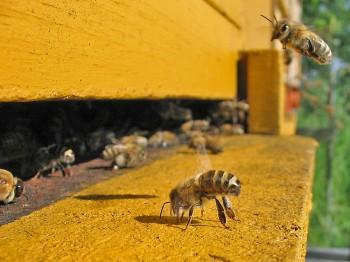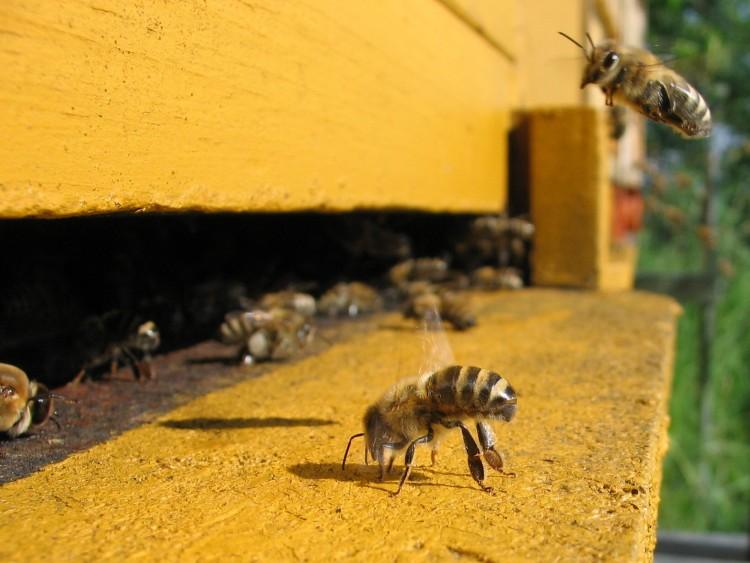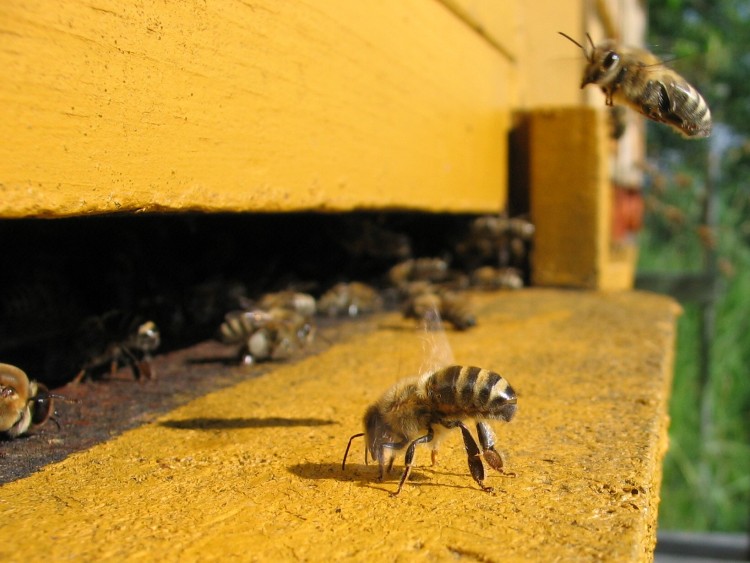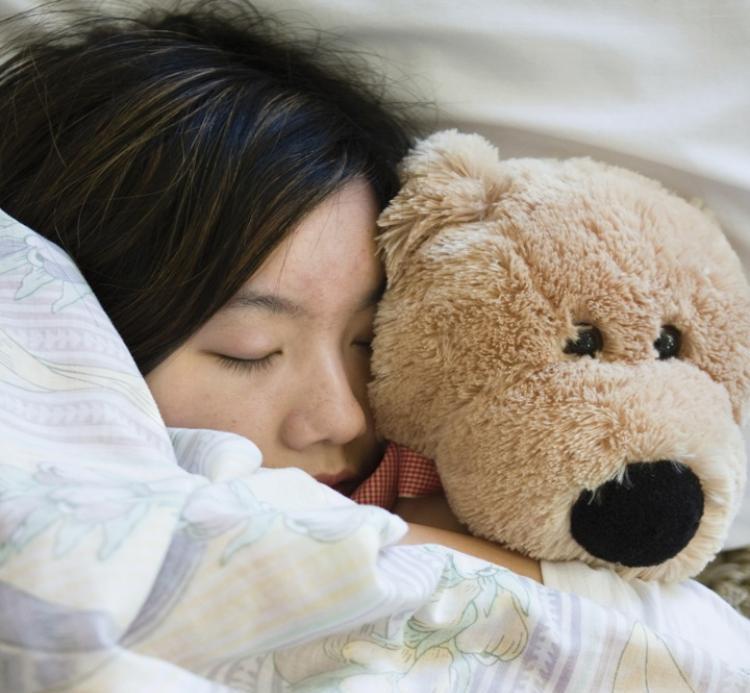Stressed Out Bees Get the Blues
Bees are more likely to make pessimistic judgements when they are stressed, and have reduced serotonin levels as seen in depressed humans.

A honeybee on an apiary, cooling down by flapping its wings. Bjorn Appel/Wikimedia
|Updated:





